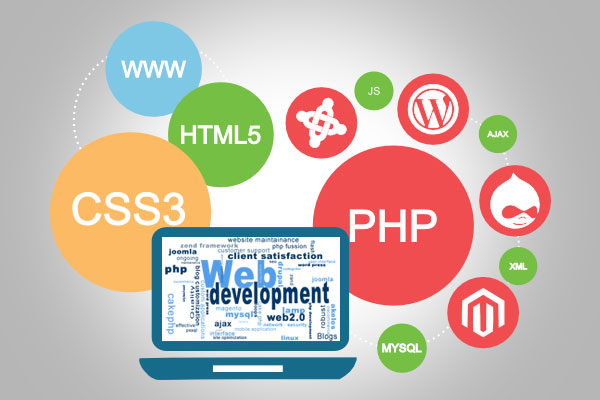In the dynamic world of web development, staying ahead of the curve requires not only keeping up with the latest trends but also having the right tools at your disposal. As we embark on a new year, the realm of web development continues to evolve rapidly, driven by technological advancements and changing user expectations. In this blog post, we'll explore some of the essential tools shaping the web development landscape in 2024, empowering developers to build, test, and deploy high-quality web applications with ease and efficiency.
Visual Studio Code (VS Code):
Visual Studio Code remains a cornerstone of web development. It offers a lightweight yet powerful code editor packed with features. Its extensive language support, integrated terminal, and built-in Git commands make it indispensable for developers of all levels.
GitHub:
GitHub continues to be the go-to platform for version control and developer collaboration. Its user-friendly interface and extensive community support make it ideal for managing code repositories and facilitating team collaboration on projects of any scale.
Chrome DevTools:
Chrome DevTools provides a comprehensive set of debugging and profiling tools for analyzing and optimizing web pages. From inspecting HTML, CSS, and JavaScript to monitoring network activity, DevTools offers invaluable insights to streamline development and improve website performance.
npm (Node Package Manager):
npm remains a fundamental resource for web developers, offering a vast array of open-source libraries and tools for JavaScript. Whether you're looking for front-end frameworks, build tools or command-line utilities, npm provides easy access to packages to enhance your development workflow.
Docker:
Docker simplifies the deployment process by allowing developers to build, ship, and run applications in lightweight, portable containers. Its containerization technology ensures consistency across different environments and facilitates collaboration between development and operations teams.
Postman:
Postman serves as a crucial asset for API development and testing endeavors.It offers a user-friendly interface for building, testing, and debugging APIs. Its support for REST, GraphQL, and SOAP APIs, automated testing, and team collaboration tools make it indispensable for modern development workflows.
Figma:
Figma is a collaborative interface design tool that offers a cloud-based platform for creating, prototyping, and sharing user interfaces. Its intuitive design features and real-time collaboration capabilities make it a preferred choice for designers and developers working on web and mobile projects.
WebPageTest:
WebPageTest provides detailed insights into page load times, resource loading behaviour, and performance bottlenecks, helping developers optimize website performance for better user experiences.
Storybook:
Storybook stands out as a widely used solution for crafting and testing UI components in isolated environments. It allows developers to build and showcase reusable components effectively.
Cypress:
Cypress is a preferred choice for end-to-end testing of web applications. It offers a fast, reliable, and developer-friendly testing experience.
Tailwind CSS:
Tailwind CSS is a utility-first CSS framework that offers a customizable set of pre-built utility classes for rapidly building responsive and accessible web interfaces. It allows developers to style their applications using a functional approach, making it easy to create consistent and visually appealing designs without writing custom CSS.
Vercel:
Vercel is a platform for deploying and hosting web applications. It offers seamless integration with popular front-end frameworks like Next.js, Nuxt.js, and Gatsby. It provides features like automatic deployments, serverless functions, and edge caching to optimize web application performance and scalability.
As we navigate the ever-changing landscape of web development in 2024, having the right tools at your disposal is essential for success. From code editors to version control systems, performance optimization tools, and beyond, the tools highlighted in this post empower developers to build high-quality web applications efficiently. By leveraging these tools and staying abreast of the latest trends, developers can deliver exceptional digital experiences that meet the needs of today's users. To learn more about the latest tools and trends in web development, visit our website: https://techeidos.com/.
Latest Trends in Web Design for 2024
The latest trends in web design reflect a dynamic interplay between aesthetics, user experience (UX), and technology, pushing the boundaries of what websites can achieve. Aesthetically, minimalism remains famous for


